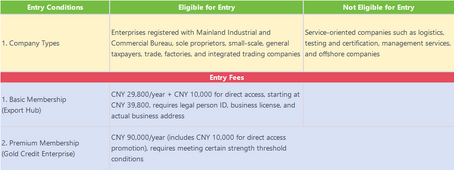I have a question for the OP.
Last week I went out shopping for an automotive battery. Of course, there are many brands sold at many big box stores in the USA, auto parts stores and dealerships. Among my choices, were batteries made in:
USA
China
South Korea
Germany
In 2 cases, the made in China batteries were priced lower and the warranty was reduced, in the third case the battery was priced same as made in Germany and made in USA.
The South Korea battery also at the higher price.
Some batteries had 36 months free replacement and then 35 months prorated if defective.
Others just had 36 months prorated from the sale date.
As an American, I felt more comfortable buying the Made in USA battery from a rock solid American company. The two Chines batteries at the lower price had reduced warranties, I think to account for the lower price point. But the third was at the same price point as the German and USA battery.
Is there any reason you can tell me why I should have chosen a Chinese made battery instead of an American made or German made battery if they are the same price and warranty?
I know this is a tough question. Was the American merchant just marking up the battery to a larger profit margin?
Claiming to be a company manufactured in the United States, it is crucial to verify that their battery assembly does not bear the "Made in China" label.
We have a customs data system that allows us to query the import and export data of our competitors and target customers. While this system is not foolproof and some data may be missing, we often come across cases where American companies use batteries manufactured in China.
Regarding the relationship between the price and warranty period you mentioned, you need to establish a key point: warranty periods typically correlate with prices. Batteries with shorter warranty periods tend to be more affordable, while those with longer warranty periods may have potential warranty costs effectively transferred to consumers, leading to higher prices.
Assuming a product has a theoretical operational lifespan of 3 years, but you request a 5-year warranty, the seller usually shifts the potential battery replacement costs for the additional 2 years onto the consumer. If the product smoothly operates for 5 years, the seller profits from the 2-year warranty extension. However, if a malfunction occurs in the fourth year, the associated cost has already been borne by you, and the seller incurs no losses.
It is important to note that if a product theoretically lasts for 3 years, but the seller promises you a 20-year warranty and is not an established company, you should be wary of the risk of them going out of business. Once the seller disappears, your after-sales support will no longer be guaranteed.
Regarding the 35-month and 36-month warranty periods you mentioned, I believe there is no significant difference. Batteries are unlikely to fail due to a one-month discrepancy unless you are exceptionally unlucky.
As for the aspect of whether American businessmen raise prices solely for higher profit margins, it is not necessarily the case. If their batteries are meticulously developed, have a good reputation, and can provide quality service and after-sales support, all of these factors contribute to increased costs. As a consumer, if you want excellent after-sales support, you may need to pay a certain fee because behind these assurances usually lies an increase in labor costs.





